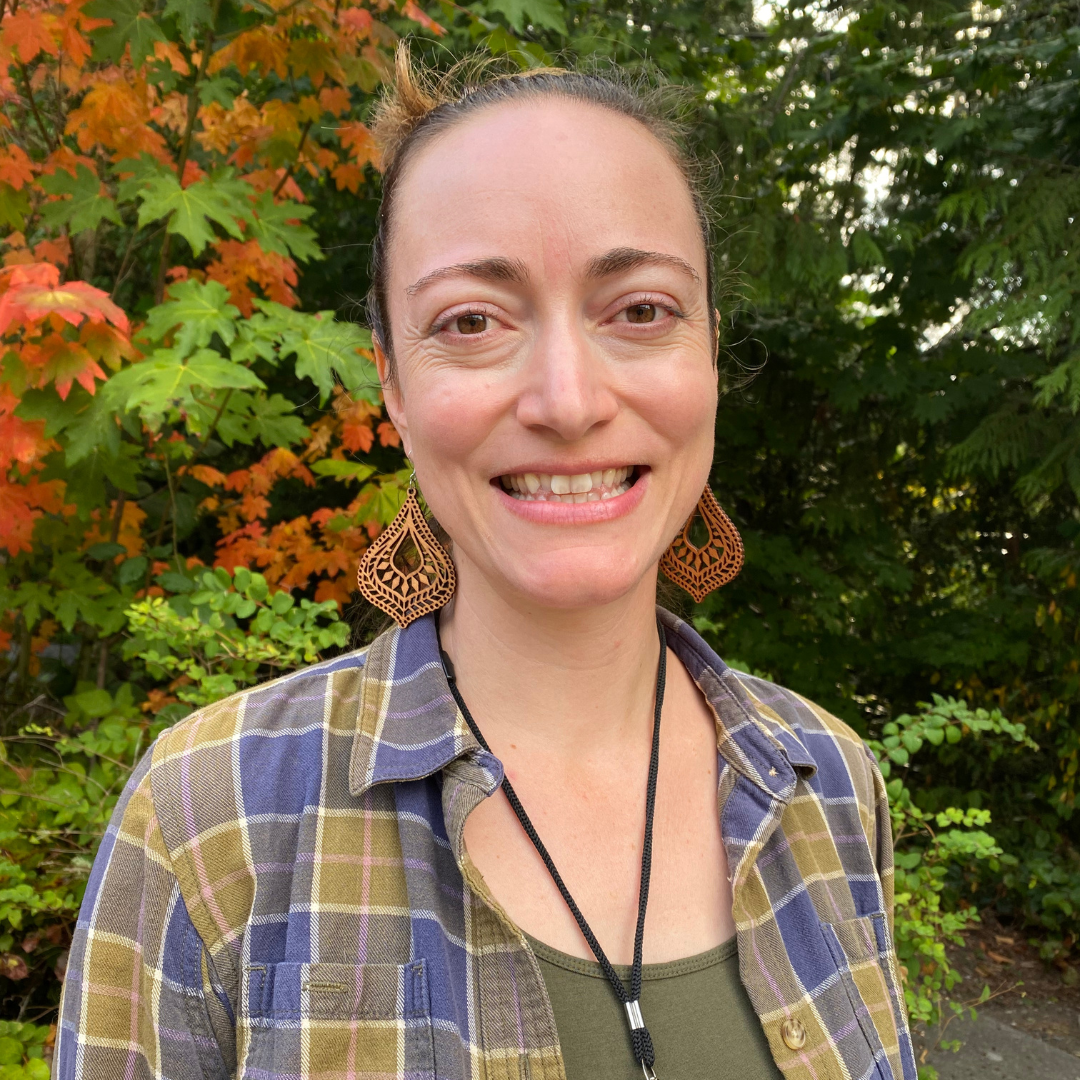
Megan Trumper, Staff Instructor
Megan Trumper, Staff Instructor
Pronouns: she/her/hers
Megan comes to us by way of the Muwekma Ohlone lands of California’s central coast. She spent her formative years tending the family garden, exploring the creek behind her house, and hiking or running in the local park. She believes that exploring those places where the urban and natural worlds meet is what first sparked her interest in ecological study and outdoor recreation, but her passions would not be fully realized until later in life.
After receiving her BA in Literary Studies from UC Santa Cruz, the recession sent Megan in search of a more fulfilling career than the path she had initially chosen. Determined to work in the outdoors, she went back to school for her Park Management degree, during which time she enjoyed part time jobs in Park Maintenance, Education Outreach, and invasive species removal. Megan’s love of field work and outreach led her to a career as a Park Ranger for Midpeninsula Regional Open Space District. This position challenged her to take on a multitude of roles (first responder, law enforcement officer, wildland fire fighter, park maintenance worker, educator etc.), but her passion was most fully expressed when developing and facilitating educational programming. It wasn’t long before Megan was tasked with attending a Certified Interpretive Trainer course from the National Association for Interpretation (NAI), in order to develop and facilitate interpretive training for fellow rangers along with a team of her peers.
As with most origin stories, the universe saw fit to send Megan on a new quest. After proposing on the top of Mount Whitney, Megan followed her partner and his Coast Guard career from California to Florida and eventually on to the great Pacific North West. During this journey Megan took advantage of the downtime afforded by COVID and went back to school yet again, this time for Environmental Education (EE). While attending Prescott College, she facilitated the first ever Virtual Certified Interpretive Guide courses where she utilized her coursework to enrich the standard curriculum for US and international students. Megan’s Master’s work and capstone focused on inclusive program design and creating an inclusive community both in and out of the classroom even in a virtual setting. She graduated with honors upon her arrival in Washington State.
Since then she has been looking for ways to use her unique combination of education and experience to give back to her community. She has spoken at conferences, continued to provide interpretive trainings, and participated in a standards review committee for NAI. Megan is excited to start working in person again and believes that spending time in the outdoors is a transformative experience and should be available to absolutely everyone.
IslandWood acknowledges that we live and work on the ancestral land of the Coast Salish people, who have been stewards of this region's land and waters since time immemorial, and who continue to protect these lands and waters for future generations, as promised by the Point Elliott Treaty of 1855, the Treaty of Point No Point of 1855, and the Treaty of Medicine Creek of 1854.
While the majority of our work takes place on Suquamish (suq̀ʷabš) and Duwamish (dxʷdɐwʔabʃ) land, we also conduct programs on the land of the Snohomish (sduhúbʃ), Puyallup (spuyaləpabš), Muckleshoot (buklshuhls), Skokomish (sqoqc’bes), and S’Klallam (nəxʷsƛ̕ay̕əm) peoples.
IslandWood is a registered 501(c)(3) charitable organization. Our tax ID number is 31-1654076.
4450 Blakely Ave. NE, Bainbridge Island, WA 98110 206.855.4300






